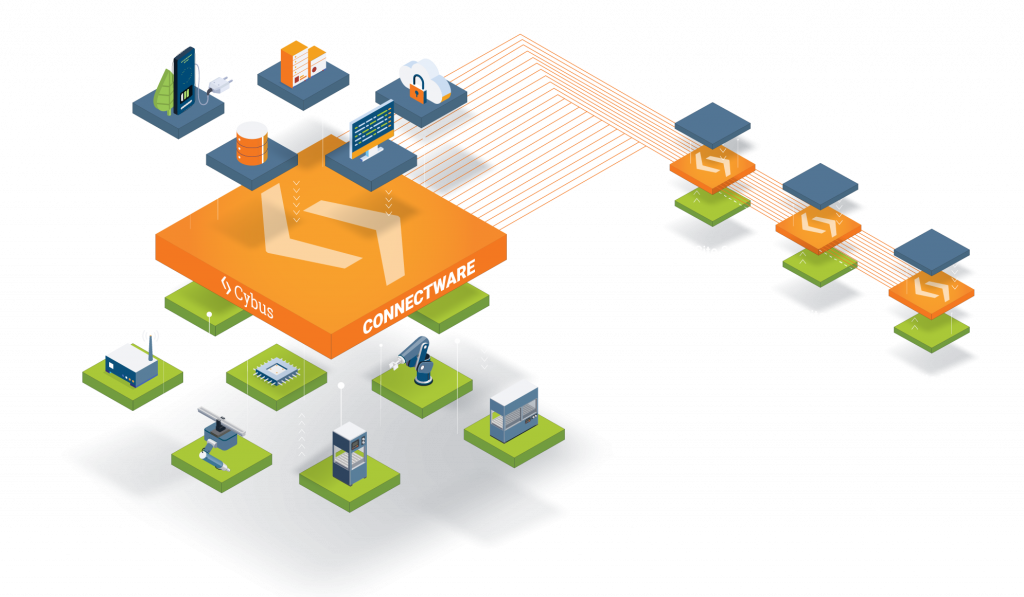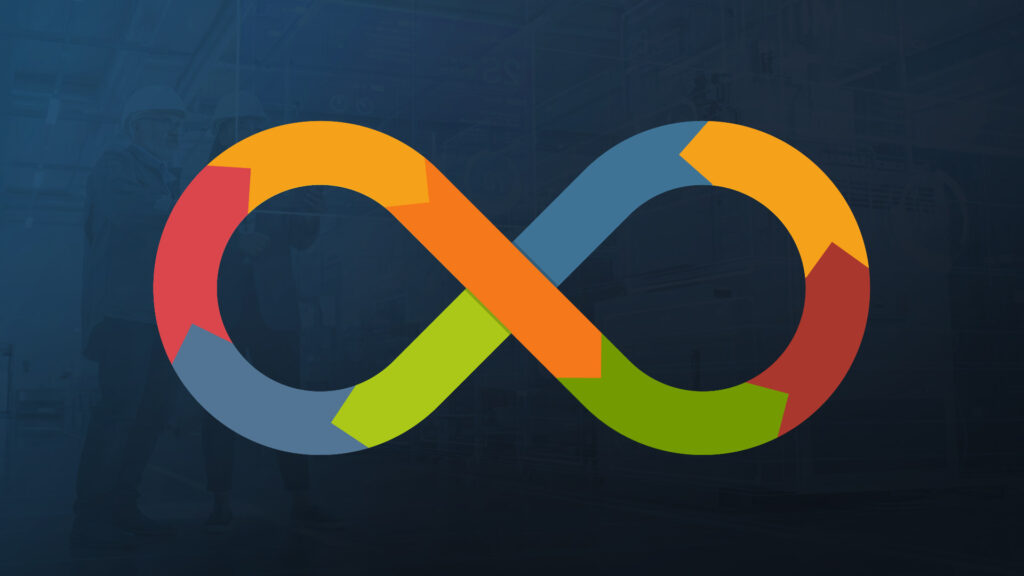-
-
Insights & knowledge
For users
Support
-
Ecosystem
About Cybus
The traditional automation pyramid, which structures manufacturing operations into hierarchical layers, is increasingly being replaced by integrated, data-centric architectures.
In the conventional model, data runs upward from sensors and actuators at the physical layer through control systems, such as PLCs and SCADA, to the enterprise layer, which includes Manufacturing Execution Systems (MES) and Enterprise Resource Planning (ERP). This structure creates data silos and delays decision making.
Conversely, a Factory Data Hub sets up a new, centralized data architecture, which promotes seamless horizontal and vertical integration. Data flows freely across all levels and systems, from the shop floor assets to highest level enterprise applications and back. This real-time, bi-directional data flow increases operational flexibility, accelerates decision making, and enables rapid adaptation to market changes.
Following the principles of DevOps, the new data-driven architecture emphasizes continuous integration and continuous delivery (CI/CD), and agile methodologies. The Factory Data Hub acts as a central component, enabling a seamless flow of information across different systems and stakeholders. Industrial DevOps extends the DevOps principles to industrial environments, particularly manufacturing and other industrial processes. It involves applying concepts from software development to industrial production to enhance automation, efficiency, flexibility, and quality in IT operations. Being based on Infrastructure-as-Code (IaC), the Factory Data Hub brings applies these software concepts and cloud technologies to the manufacturing environment.

In the ever-evolving landscape of manufacturing, efficiency, scalability, and innovation are more critical than ever. Central to achieving these goals is the Factory Data Hub, a pivotal component that serves as the heart of contemporary production environments. A Factory Data Hub sets up connectivity, data integration, process optimization and automation. Hence, it is the core software to transform towards Industry 4.0.

The Hamburg-based software company Cybus launched the first Factory Data Hub on the market and is still a leader in the integration of large and complex industrial landscapes. The flagship software Connectware is the only data hub that can fulfill the automation, scaling and security requirements of a global manufacturing enterprise, thanks to its unique Infrastructure-as-Code architecture.

You need to load content from reCAPTCHA to submit the form. Please note that doing so will share data with third-party providers.
More InformationYou are currently viewing a placeholder content from Turnstile. To access the actual content, click the button below. Please note that doing so will share data with third-party providers.
More InformationYou are currently viewing a placeholder content from Facebook. To access the actual content, click the button below. Please note that doing so will share data with third-party providers.
More InformationYou are currently viewing a placeholder content from Instagram. To access the actual content, click the button below. Please note that doing so will share data with third-party providers.
More InformationYou are currently viewing a placeholder content from X. To access the actual content, click the button below. Please note that doing so will share data with third-party providers.
More Information